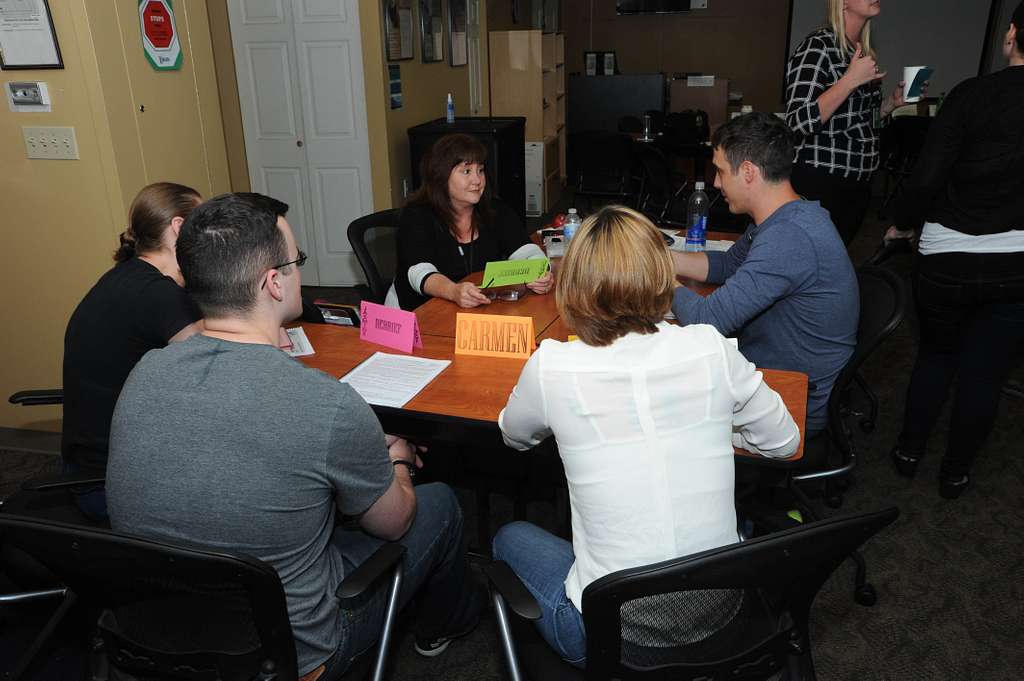Ever wondered about a career that not only offers a fulfilling job but also impacts lives in the most significant way? Well, you're in the right spot. Today, we're diving deep into the world of recovery advocate jobs. If you're intrigued by the idea of helping others overcome their battles with addiction and you're seeking a career that offers growth and satisfaction, you've hit the jackpot of information.
We'll explore everything from the recovery advocate job description to the exciting career opportunities that await you. Whether you're drafting your very first recovery advocate resume or you're curious about the recovery advocate salary, this article has got you covered. Buckle up, and let's embark on this enlightening journey together.
Understanding the Role: Recovery Advocate Job Description
Embarking on a career as a recovery advocate puts you at the forefront of change, directly influencing individuals battling with addiction.

But what does this role entail? Fundamentally, the recovery advocate job description encompasses supporting, guiding, and empowering those in recovery. Advocates work in various settings, including rehabilitation centers, community centers, and private facilities, offering a beacon of hope to those they assist. Your primary responsibilities would involve developing personalized recovery plans, facilitating group meetings, providing emotional support, and connecting clients with the necessary resources for their journey.
This role demands not only a deep understanding of addiction and recovery processes but also immense compassion and patience. To excel, you'll need to be emotionally resilient, an effective communicator, and passionate about making a difference in people's lives. It's a calling that offers immeasurable satisfaction by witnessing the transformative power of recovery first-hand.
Mapping the Path: Career Opportunities for Recovery Advocates
The landscape of career opportunities for recovery advocates is both diverse and promising.
Beyond the foundational role in rehabilitation centers, advocates often find rewarding positions in hospitals, mental health facilities, non-profit organizations, and even as part of governmental health departments. Each setting offers a unique environment to apply your skills and passion. For those with an entrepreneurial spirit, creating community outreach programs or starting a recovery-focused consultancy can pave the way to fulfilling self-employment.
Moreover, as public awareness around mental health and addiction recovery grows, so does the demand for skilled professionals in this domain. Many advocates advance their careers by specializing in areas such as youth recovery, family counseling, or addiction research. With dedication and continuous professional development, a career as a recovery advocate can evolve to meet your aspirations and the ever-changing needs of the community you serve.
Show Me the Money: What's the Recovery Advocate Salary Like?
When considering a career path, it's reasonable to ponder about the financial aspect.

The recovery advocate salary varies significantly based on factors like education, experience, geographic location, and the type of facility you work in. Entry-level positions in smaller centers or non-profit organizations may offer a starting point, while experienced advocates in large hospitals or private rehab facilities can expect higher compensation.
On average, salaries can range from the low $30,000s for newcomers to upwards of $60,000 for seasoned professionals. Furthermore, those who branch out into private practice or consultancy might uncover opportunities for higher earnings, especially with a solid reputation and network. It's crucial to remember that, while financial rewards are an aspect to consider, the intrinsic value of helping individuals transform their lives is often what draws people to this fulfilling career path.
Crafting Your Identity: Recovery Advocate Resume Examples
Your resume is more than a list of experiences; it's a testament to your commitment and capabilities as a recovery advocate.
Crafting a resume that stands out begins with highlighting your hands-on experience in the field, whether through professional roles, internships, or volunteer positions. Be sure to showcase your knowledge of recovery methodologies, case management abilities, and any specialized skills such as crisis intervention techniques or familiarity with legal aspects of patient care.
Incorporating measurable successes, like the number of clients you've supported or programs you've developed, can significantly bolster your profile. Resume examples often include proficiency in relevant software for case management, demonstrating an adept ability to navigate modern healthcare environments. Finally, personal attributes like empathy, resilience, and effective communication should shine through your resume, reflecting the essence of what makes a great recovery advocate.
Getting Started: Job Description for Recovery Advocate
The journey to becoming a recovery advocate begins with a clear understanding of the job description for recovery advocate positions.

This role is multifaceted, requiring a blend of soft and hard skills. Key responsibilities often include assessing client needs, developing and implementing recovery plans, and monitoring progress. Advocates are also expected to facilitate support groups, provide crisis intervention as needed, and work collaboratively with healthcare professionals to ensure a holistic approach to recovery.
Essential skills for the role encompass strong interpersonal abilities, insightful judgment, proficiency in record-keeping, and an unwavering commitment to confidentiality and ethical standards. Educational requirements can vary, but a background in psychology, social work, or a related field is highly beneficial, along with certifications specific to substance abuse counseling. For those passionate about making a difference, understanding this comprehensive job description is the first step towards a rewarding career in helping others reclaim their lives from addiction.
Beyond the Basics: Advancing Your Career as a Recovery Advocate
Advancing your career as a recovery advocate involves more than accumulating years of experience; it's about actively seeking opportunities for growth and development. Continuing education is a cornerstone of career advancement, with many advocates pursuing additional certifications or advanced degrees in counseling, psychology, or social work.
Specializing in a niche area, such as adolescent recovery, substance abuse, or mental health disorders, can also distinguish you in the field and offer opportunities to impact underserved communities.
Networking plays a crucial role; attending conferences, participating in professional associations, and connecting with mentors can open doors to new opportunities and insights. Embracing leadership opportunities, whether by leading a team, developing new programs, or advocating for policy changes, can further solidify your position as a respected professional in the recovery community. As you grow, remember that your journey can inspire and pave the way for the next generation of recovery advocates.